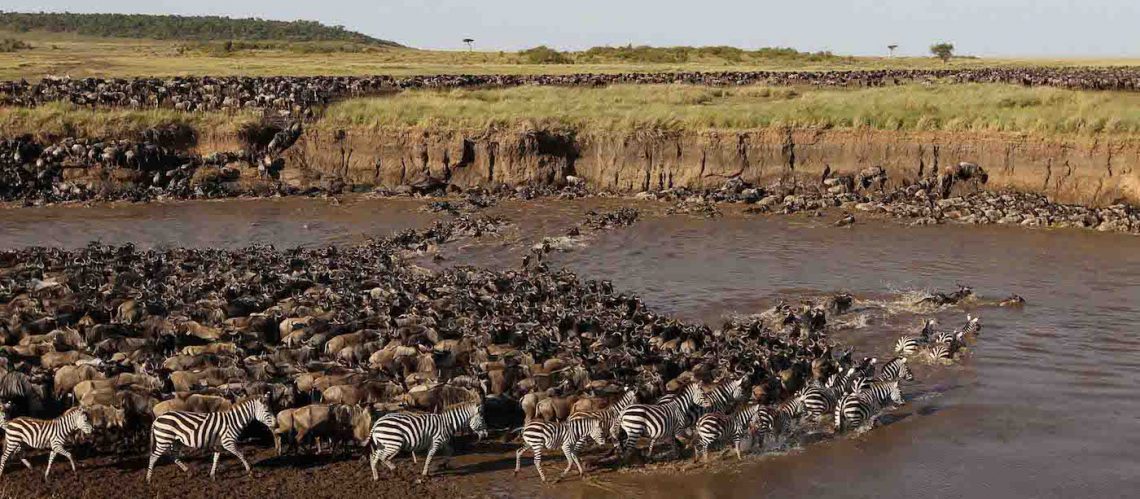Wildlife conversation education is taking on new forms beyond the borders of the classroom. In the heart of the Serengeti, Tanzania, where the golden grasslands stretch as far as the eye can see and the rhythm of nature pulses through every leaf and blade, a unique educational initiative is sowing the seeds of conservation and environmental awareness among Africa’s future stewards.
Serengeti National Park was one of the first sites listed as a World Heritage Site when United Nations delegates met in Stockholm in 1981. By the late 1950s, this area had been recognised as a unique ecosystem, providing us with many insights into how the natural world functions and showing us how dynamic ecosystems are.
Today, most visitors come here with one aim alone: to witness millions of wildebeest, zebras, gazelles and elands on a mass trek to quench their thirst for water and eat fresh grass. During this great cyclical movement, these ungulates move around the ecosystem in a seasonal pattern, defined by rainfall and grass nutrients.

Serengeti National Park – Source: Serengeti National Park
These large herds of animals on the move can’t be witnessed anywhere else. Whereas other famous wildlife parks are fenced, the Serengeti is protected, but unfenced. Giving animals enough space to make their return journey, one that they’ve been doing for millions of years. Read more about the Great Migration.
Meet Kaya, a spirited young student from a village nestled on the fringes of the Maasai Mara. Her education transcends the walls of a traditional classroom, for she is part of a pioneering programme that intertwines formal learning with the profound lessons nature has to offer.
The Maasai Mara Environmental Education Programme is not just a syllabus; it’s an odyssey into the heart of biodiversity. As Kaya and her classmates embark on nature walks led by seasoned guides, the savannah becomes their classroom, and the wildlife their teachers.
They learn about the delicate balance of ecosystems, the migratory patterns of wildebeests, and the intimate interdependence that binds every creature in this vast tapestry of life.
Since its inception in 1993, the Friends of Conversation (FOC) Conservation Clubs programme has established clubs within more than 50 Mara and Trans Mara schools and remains active in over half today.
Clubs have between 40 and 100 members and engage over 1,800 Maasai children annually in conservation-related activities, including tree planting, agro-forestry projects, bird watching, beekeeping and community health projects. These projects help to promote sustainable capacity building at the school-age level.
Through these clubs, FOC has impacted over 25,00o students over two decades. With the environmental education received, many graduates of the FOC Conservation Clubs have gone on to earn jobs in the tourist and hospitality industries in the Masai Mara.
Education here is not a one-way street. The programme goes beyond textbooks, encouraging active participation. Kaya finds herself engaged in tree-planting initiatives, understanding the role of vegetation in maintaining the delicate equilibrium of the ecosystem. She learns how the health of the land is mirrored in the well-being of its inhabitants, both human and wild.
In the heart of the Congo Basin, a different tale unfolds. A group of students, armed with binoculars and a thirst for knowledge, is part of an avian education initiative.
As they explore the diverse bird species that call the lush rainforest home, their understanding of the intricate web of life deepens. The vibrant plumage and melodic symphony of the birds become catalysts for discussions on biodiversity, conservation, and the global significance of preserving these ecosystems.
Back in the bustling city of Nairobi, a tech-driven initiative is making waves. The Virtual Safari Classroom connects students from urban schools with the wonders of Africa’s wildlife. Through virtual reality headsets, students are transported to the heart of national parks, where they witness elephants trumpeting, lions on the prowl, and rhinos grazing—all from the comfort of their classroom desks.
Read also: Goal Setting: Start with a Strong Why
The aim is to instil a sense of wonder and responsibility, fostering a generation of digital natives who are also guardians of the wild.
These educational programmes are not mere supplements to the curriculum; they are the foundation for a generation that will be entrusted with the stewardship of Africa’s rich biodiversity. They weave a narrative that education is not confined to classrooms but extends to the vast landscapes, the rustling leaves, and the myriad species that share this planet.
Through these initiatives, students like Kaya become ambassadors for the wild. Armed with knowledge, empathy, and a sense of responsibility, they are poised to shape a future where education and environmental conservation walk hand in hand, ensuring that the pulse of Africa’s biodiversity beats strong for generations to come.











